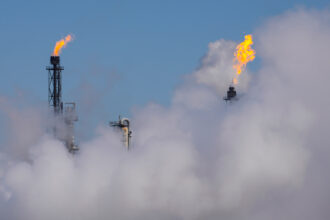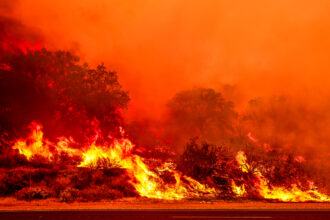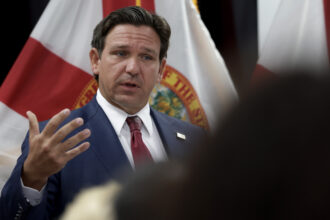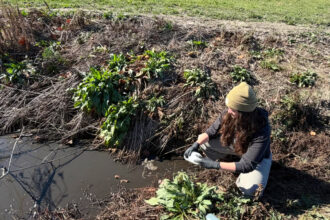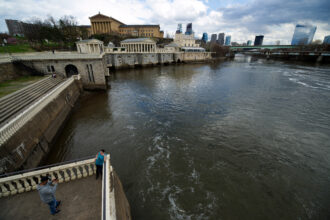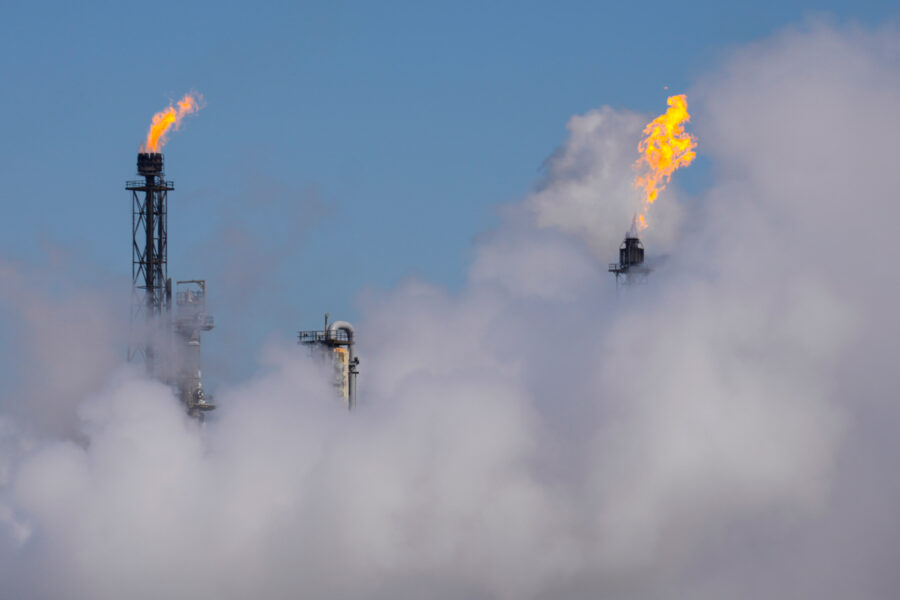by George Monbiot and James Randerson, Guardian
The head of the UN’s climate science panel did not abuse his position to enrich himself, according to an independent review of his finances by the accountants KPMG that was published publicly for the first time today.
Rajendra Pachauri, the chairman of the Intergovernmental Panel on Climate Change (IPCC), had come under pressure to resign following two mistakes in a 2007 IPCC report and false allegations that he had made millions of dollars from advisory roles.
The KPMG report into the finances of The Energy and Resources Institute (TERI), a charity directed by Pachauri, concluded:
"No evidence was found that indicated personal fiduciary benefits accruing to Pachauri from his various advisory roles that would have led to a conflict of interest."
Pachauri does not receive a salary for his work chairing the IPCC.
Commenting on the report, Pachauri said,
"I am glad that the truth has finally come out. I hope that with this outcome, those who revel in scurrilous and hateful attempts at defamation would be suitably restrained."
In December, an article in the Sunday Telegraph had claimed that the UN climate chief was "making a fortune from his links with ‘carbon trading’ companies" and that payments from his work for other organizations "must run into millions of dollars". The article has since been removed from the newspaper’s website.
Last weekend it issued an apology to Pachauri.
"[The article] was not intended to suggest that Dr Pachauri was corrupt or abusing his position as head of the IPCC and we accept KPMG found Dr Pachauri had not made ‘millions of dollars’ in recent years. We apologise to Dr Pachauri for any embarrassment caused."
The KPMG audit, completed in March, showed the allegation that Pachauri had made millions of dollars could not be further from the truth. In addition to his annual salary of £45,000, the auditors found that in the period 1 April 2008 – 31 December 2009 ,Pachauri received 20,000 rupees (£278) from two national power commissions in India, on which he serves as director; 35,880 rupees (£498) for articles and lectures; and a maximum of 100,000 rupees (£1,389) in the form of royalties from his books and awards.
Any money paid as a result of work that Pachauri had done for other organizations went to TERI. The accounts also show that Pachauri also donated to the institute a lifetime achievement award from the Environment Partnership Summit – a 200,000 rupee prize he would have been entitled to keep.
The KPMG report and public apology will come as a relief ahead of an official UN review into the processes and procedures of the IPCC that is due to published on Monday. It was set in motion after it emerged in January that the IPCC’s 2007 report included false information stating that Himalayan glaciers could melt by 2035.
The review, carried out the by InterAcademy Council – which represents the world’s national science academies – will investigate how inaccuracy crept into the 2007 IPCC report. It is tasked with recommending "measures and actions to strengthen the IPCC’s processes and procedures so as to be better able to respond to future challenges and ensure the ongoing quality of its reports".
(Republished with permission)
About This Story
Perhaps you noticed: This story, like all the news we publish, is free to read. That’s because Inside Climate News is a 501c3 nonprofit organization. We do not charge a subscription fee, lock our news behind a paywall, or clutter our website with ads. We make our news on climate and the environment freely available to you and anyone who wants it.
That’s not all. We also share our news for free with scores of other media organizations around the country. Many of them can’t afford to do environmental journalism of their own. We’ve built bureaus from coast to coast to report local stories, collaborate with local newsrooms and co-publish articles so that this vital work is shared as widely as possible.
Two of us launched ICN in 2007. Six years later we earned a Pulitzer Prize for National Reporting, and now we run the oldest and largest dedicated climate newsroom in the nation. We tell the story in all its complexity. We hold polluters accountable. We expose environmental injustice. We debunk misinformation. We scrutinize solutions and inspire action.
Donations from readers like you fund every aspect of what we do. If you don’t already, will you support our ongoing work, our reporting on the biggest crisis facing our planet, and help us reach even more readers in more places?
Please take a moment to make a tax-deductible donation. Every one of them makes a difference.
Thank you,





